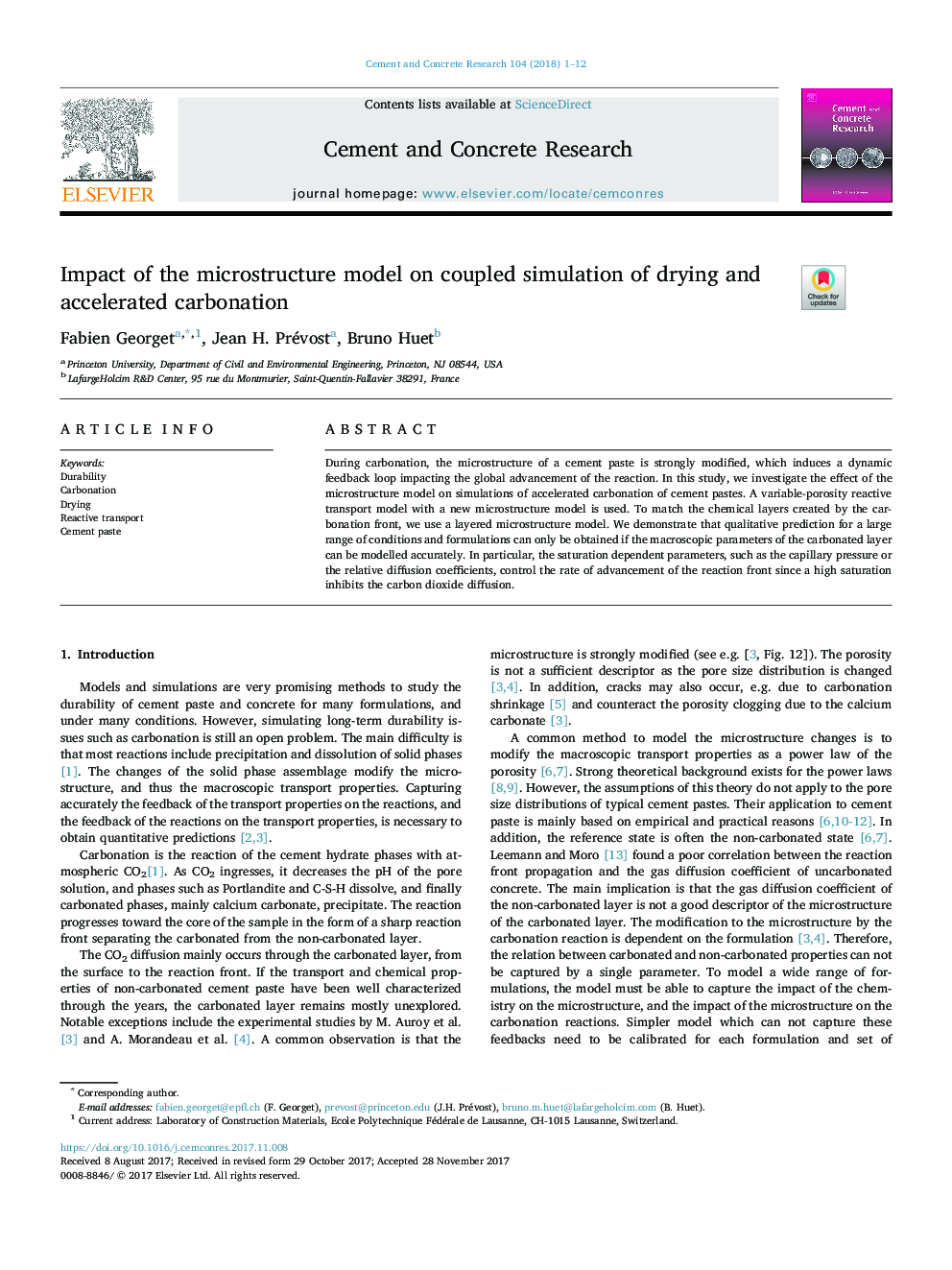| Article ID | Journal | Published Year | Pages | File Type |
|---|---|---|---|---|
| 7884844 | Cement and Concrete Research | 2018 | 12 Pages |
Abstract
During carbonation, the microstructure of a cement paste is strongly modified, which induces a dynamic feedback loop impacting the global advancement of the reaction. In this study, we investigate the effect of the microstructure model on simulations of accelerated carbonation of cement pastes. A variable-porosity reactive transport model with a new microstructure model is used. To match the chemical layers created by the carbonation front, we use a layered microstructure model. We demonstrate that qualitative prediction for a large range of conditions and formulations can only be obtained if the macroscopic parameters of the carbonated layer can be modelled accurately. In particular, the saturation dependent parameters, such as the capillary pressure or the relative diffusion coefficients, control the rate of advancement of the reaction front since a high saturation inhibits the carbon dioxide diffusion.
Related Topics
Physical Sciences and Engineering
Engineering
Industrial and Manufacturing Engineering
Authors
Fabien Georget, Jean H. Prévost, Bruno Huet,
